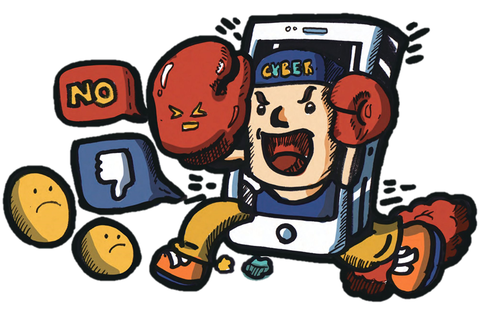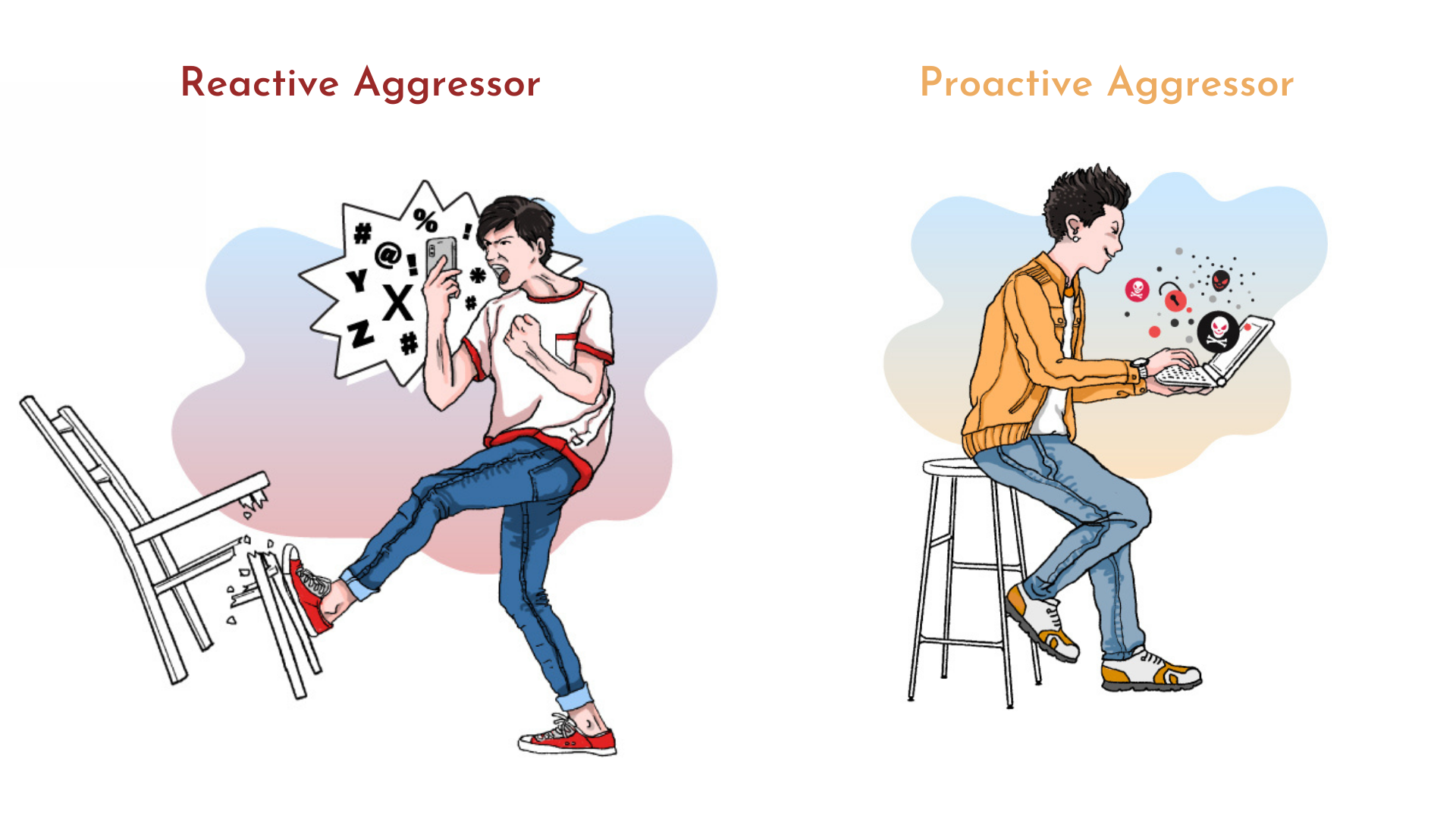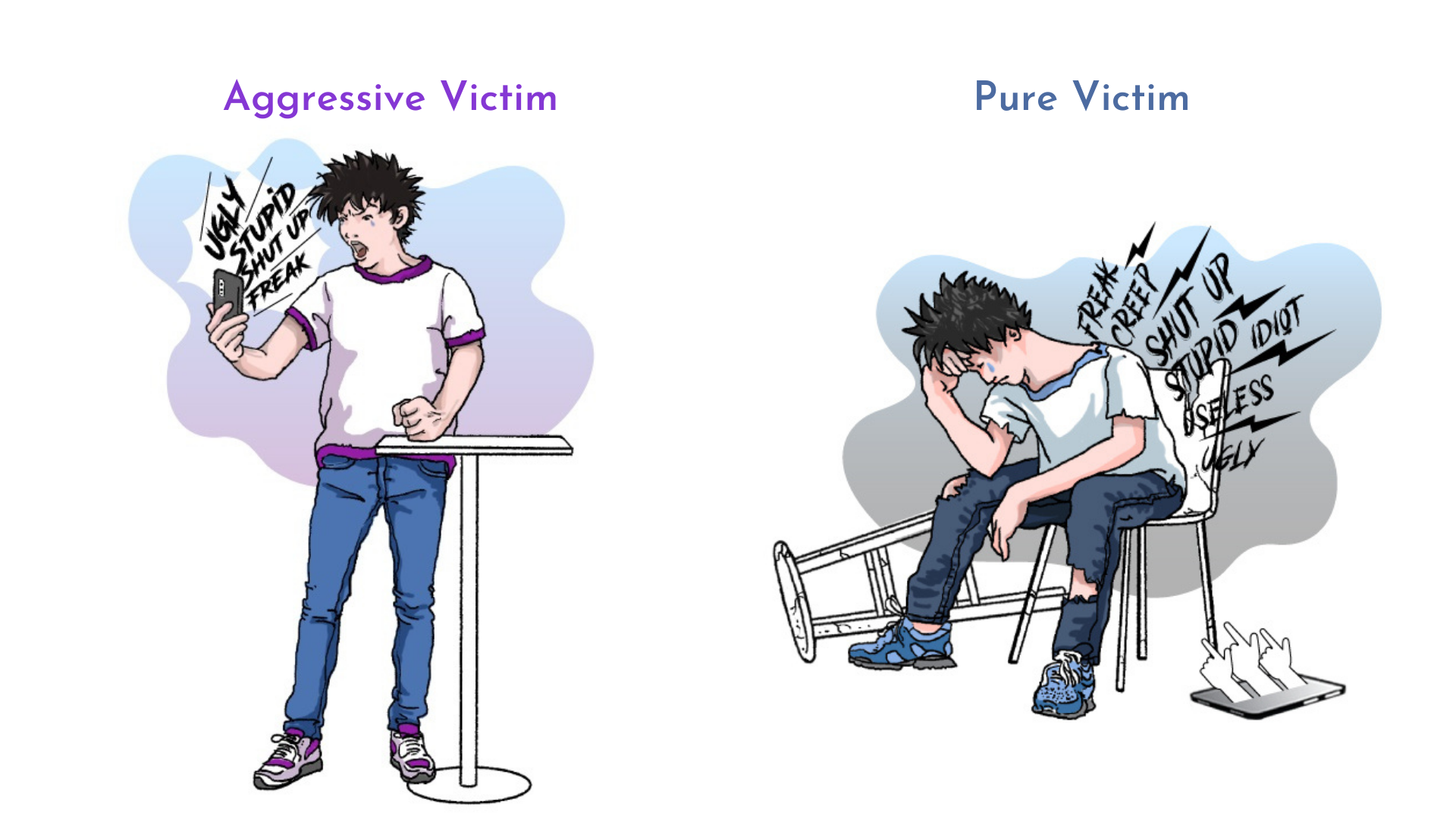Know More about Online Aggression
How much do you know about Aggression and Online Aggression?
Let’s find out more to help you better enjoy the cyber world without falling into the trap.
What is Aggression?
- Aggression means behaviors intended to cause harm
- Accidental harm is not aggression because of unintentionally
- Common examples of aggression include punches, kicks, insults, intimidation, and blackmail
- Even gossip, lying, and social exclusion can be aggression when the intention is to hurt
- The two distinct types of aggression are reactive aggression and proactive aggression, please visit C.A.R.E Lab website for more details.
Forms of Aggression
- Physical Aggression
to harm someone in physical way, e.g. punching, kicking
- Verbal Aggression
use of offensive language to hurt or humiliate others, e.g. name calling, making fun of others
- Relational Aggression
to harm others’ social relationships, e.g. isolating, boycotting
- Sexual Aggression
includes unwanted attention in the form of sexual harassment, e.g. staring, obscene phone calls
- Online Aggression
any aggressive and intentional harm delivered by the use of electronic means to a person/group who perceive such acts as offensive or unwanted, it can be as simple as liking a negative comment
Online Aggression Vs Cyberbullying
| Online Aggression | Cyberbullying | |
|---|---|---|
| Scope | include all sort of aggressive behaviours occurring online, can be a one-off situation | a malicious and targeted approach, usually repeated and over time |
| Aggressor's Intention | the perpetrators do not necessarily know it is wrong | the perpetrators have an intent to harm the other person, they are well-planned and calm |
| Aggressor's Goal | may simply for fun without involving any personal rewards | achieve personal goals and rewards, e.g. money, materials, dominance, happiness, etc. |
Victims in the Online World
- The two subtypes of victimization in aggression are aggressive victims and pure victims, some cyber-victims are also bullied in reality.
- There are also exceptions that some victims in reality would have the ability to fight back online to become cyber-bullies, creating a vicious cycle between the cyber world and reality.
- Cyber-victims usually experience the feelings of anger, sadness, frustration, fear, embarrassments, upset, and distress
- Unresolved emotional pain might lower the victims’ psychological wellbeing, in terms of suffering from depression, anxiety, sleep problems, and low self-esteem.
Aggressors Vs Victims
To know more about the Aggressors and Victims , you may go to our YouTube channel.



